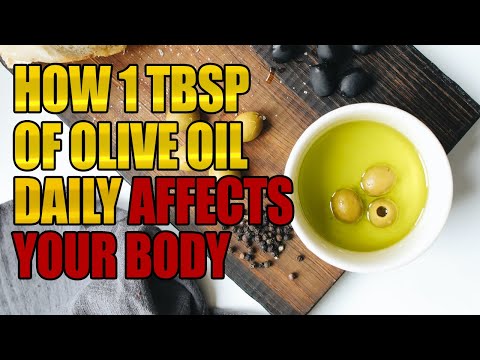BARCELONA, Spain — Mothers-to-be may want to add a little extra EVOO to their meals. A recent study finds consuming extra virgin olive oil during pregnancy boosts the quality of breast milk.
The popular dressing and cooking ingredient is rich in omega 3 and omega 6 fats which fuel a baby’s growth, researchers in Spain say. They even cross the placental barrier, improving development of the child in the womb.
“This is the first study to report transmission of extra virgin olive oil plant compounds from mother to offspring during breastfeeding,” says lead author Dr. Maria Rodrigues-Lagunas, according to a statement from SWNS.
The findings are based on female rats fed olive oil for six weeks. Analysis of blood samples identified chemical derivatives in the mothers and their pups. The antioxidants called hydroxytyrosol and tyrosol destroy free radicals that damage DNA.
“Our results support that diets enriched with extra virgin olive oil could modify or even increase the chemical content of breast milk – with potential health benefits for the infant,” Dr. Rodrigues-Lagunas tells SWNS. “Moreover, promising levels of olive oil compounds and their metabolites were detected in offspring plasma.”
EVOO and breast milk may be a very healthy duo
Breast milk is the best source of nutrition for infants. It contains essential nutrients, hormones, and antibodies that protect against infections and metabolic diseases. Breastfeeding also provides many short and long-term benefits to the mother, including reducing their risk of breast cancer.
Extra virgin olive oil is the main source of fat in the Mediterranean diet, long hailed for its health benefits.
“Our findings shed fresh light on the importance of the maternal diet during pregnancy and lactation,” researchers from the University of Barcelona say in a statement. “They provide the basis for future studies on the impact of plant compounds on the health of mother and offspring.”
Extra virgin olive oil is also easy to digest and helps gastric functioning, preventing constipation and colic. EVOO helps in the absorption of vitamin D, important for growing babies and children because it regulates calcium. It also encourages the intake of minerals that are essential for strengthening bone and muscle.
This gives children added protection against bone fractures in their early years and the risk of osteoporosis during old age. Olive oil lowers bad cholesterol, a great contributor to obesity that affects one out of three children between six and nine years of age. Doctors have recommended replacing animal fats with it as well.
Some studies have shown a lower risk of asthma in mothers who have consumed a consistent amount of olive oil throughout pregnancy. Their babies have been found to have a more developed immune system and a lower risk of rhinitis and allergies.
After breastfeeding, should EVOO go in a baby’s food?
In Italy, doctors strongly recommend using olive oil in solids for babies that are being weaned off breast milk. They even recommend adding it to formula milk to gain the benefits of the substance, especially for babies suffering from colic.
“To date, several studies had described the composition of breast milk can be affected by biological and environmental factors to which the mother is exposed, such as the mother’s diet,” Dr. Rodrigues-Lagunas tells SWNS. “Therefore, the nutritional interventions during pregnancy and the breastfeeding period can have an impact on the quality of breast milk, and consequently, on the infant’s health.”
The study is published in the journal Food Chemistry.
South West News Service writer Mark Waghorn contributed to this report.

Tags: Breast milk, breastfeeding, extra virgin olive oil, olive oil, pregnancy